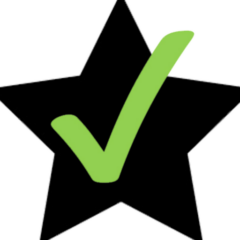As organizations strive to fortify their digital defenses against cyber threats, the role of ethical hackers has become crucial in ensuring the security and integrity of sensitive information. If you’re passionate about technology and have a knack for uncovering vulnerabilities, there’s an exciting opportunity waiting for you in the world of ethical hacking.
Why Ethical Hacking Matters
In an era where cyber threats loom large, ethical hackers play a pivotal role in preemptively identifying and neutralizing potential vulnerabilities. Unlike malicious hackers, ethical hackers use their skills to strengthen security measures, protecting systems and networks from unauthorized access, data breaches, and other cyber-attacks. This proactive approach is essential in maintaining the confidentiality, integrity, and availability of digital assets.
The Evolving Role of Ethical Hackers
Gone are the days when cybersecurity was primarily reactive. Today, ethical hackers are integral members of cybersecurity teams, collaborating to develop robust defense strategies. Their responsibilities extend beyond traditional network security to include web applications, mobile devices, and even IoT (Internet of Things) devices. This broad scope ensures that ethical hackers remain at the forefront of technological advancements, adapting to new challenges and emerging threats.
Qualifications and Skills Needed
Securing a position as an ethical hacker requires a combination of education, certifications, and hands-on experience. A bachelor’s degree in computer science, information technology, or a related field is often a prerequisite. Additionally, certifications such as Certified Ethical Hacker (CEH), Offensive Security Certified Professional (OSCP), and Certified Information Systems Security Professional (CISSP) can significantly enhance your credibility.
Technical proficiency is a must-have for ethical hackers. Profound knowledge of programming languages, network protocols, and cybersecurity tools is essential. Moreover, strong analytical and problem-solving skills, coupled with a keen attention to detail, are paramount in identifying and rectifying security loopholes.
Day-to-Day Responsibilities
The daily routine of an ethical hacker is diverse and dynamic. From conducting vulnerability assessments and penetration testing to analyzing system logs and implementing security solutions, each day presents new challenges. Ethical hackers often work closely with IT professionals, providing insights into potential risks and collaborating to implement effective security measures.
How to Land the Job
Securing a job as an ethical hacker requires more than just technical expertise. Employers often seek candidates who possess excellent communication skills, as conveying complex technical information to non-technical stakeholders is a common aspect of the role. Networking within the cybersecurity community, participating in hackathons, and contributing to open-source projects can also boost your chances of landing that dream job.
As the digital landscape continues to expand, the need for skilled ethical hackers remains at an all-time high. If you’re passionate about cybersecurity, possess the necessary technical skills, and are ready to take on the challenges of safeguarding digital assets, the position of an ethical hacker could be your gateway to a rewarding and impactful career. Embrace the opportunity, equip yourself with the right qualifications, and embark on a journey to secure the digital future.
